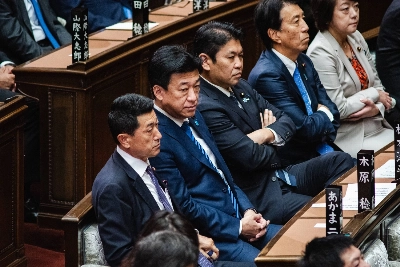At its make-or-break summit last weekend in Nice, the European Union bent. Faced with the need to reform to accommodate new members and new responsibilities, European heads of state produced the inevitable compromises and fudges. Some choices were made; others, predictably, were put off. Still, the ground has been prepared for expansion. But just as important is the new dynamic that has been exposed at the heart of the EU.
If the community is to double in size, as planned, then it has to change. Voting rules and rights have to be modified if the Union is not to collapse under the weight of new members. The willingness of governments to alter cherished procedures and cede more sovereignty to the Brussels bureaucracy is the test of their commitment to real European union. In the abstract, that sounds easy; in reality, it is extremely difficult -- which is why last weekend's compromises are to be applauded.
Key questions concerned membership in the European Commission, voting rights within the Council of Ministers, national vetoes, adding new members, and the ability of governments to pursue special projects without the rest of the Union. The issues are linked, which made compromise a little easier: A concession in one area matched a "victory" in another.


















With your current subscription plan you can comment on stories. However, before writing your first comment, please create a display name in the Profile section of your subscriber account page.